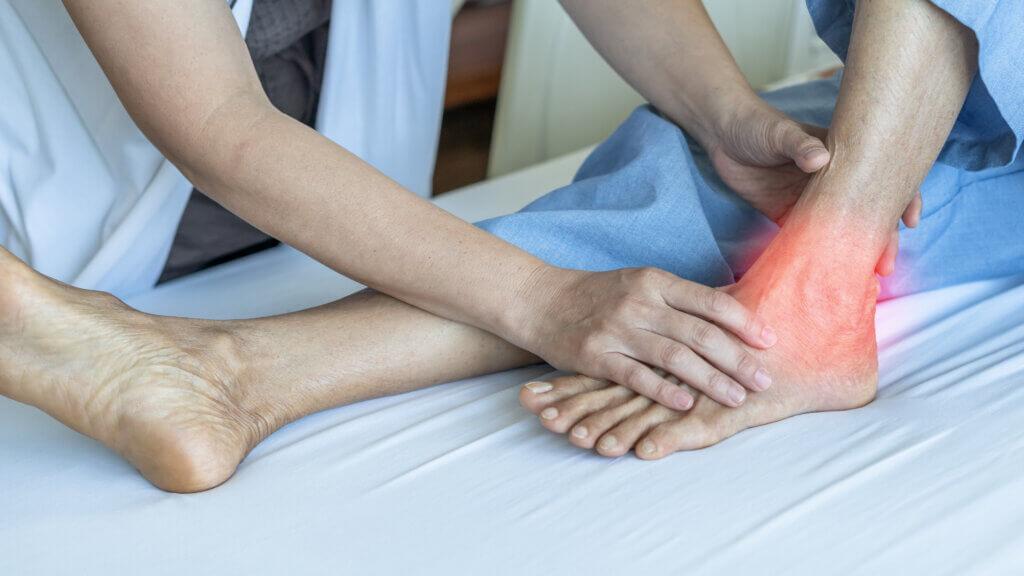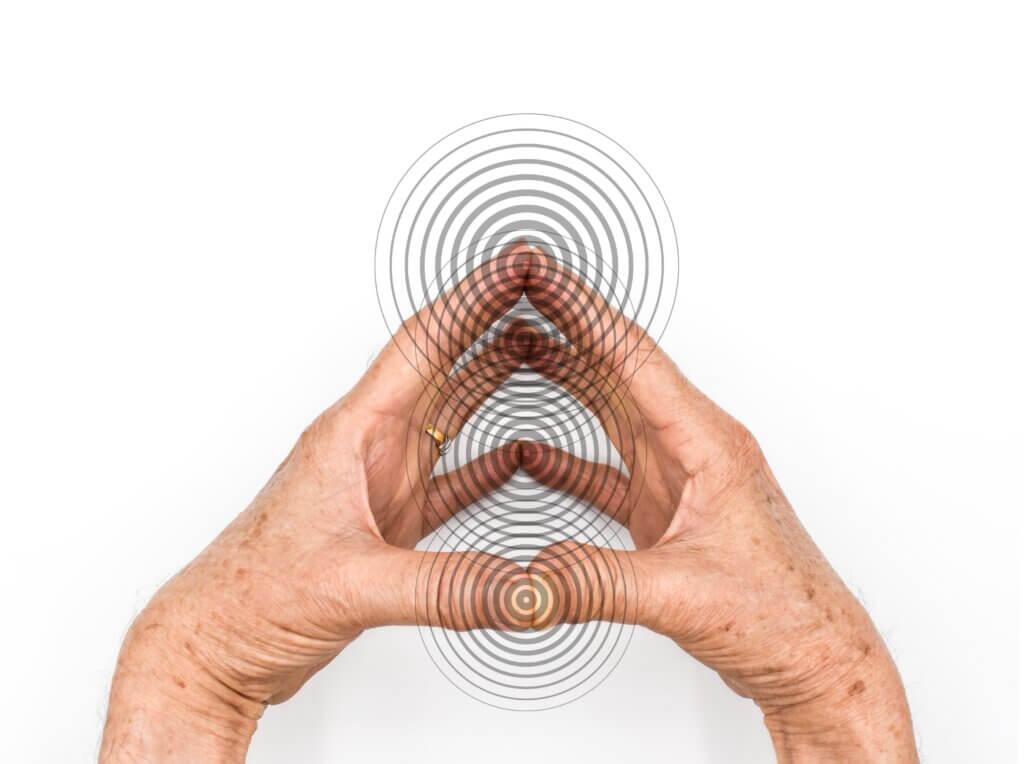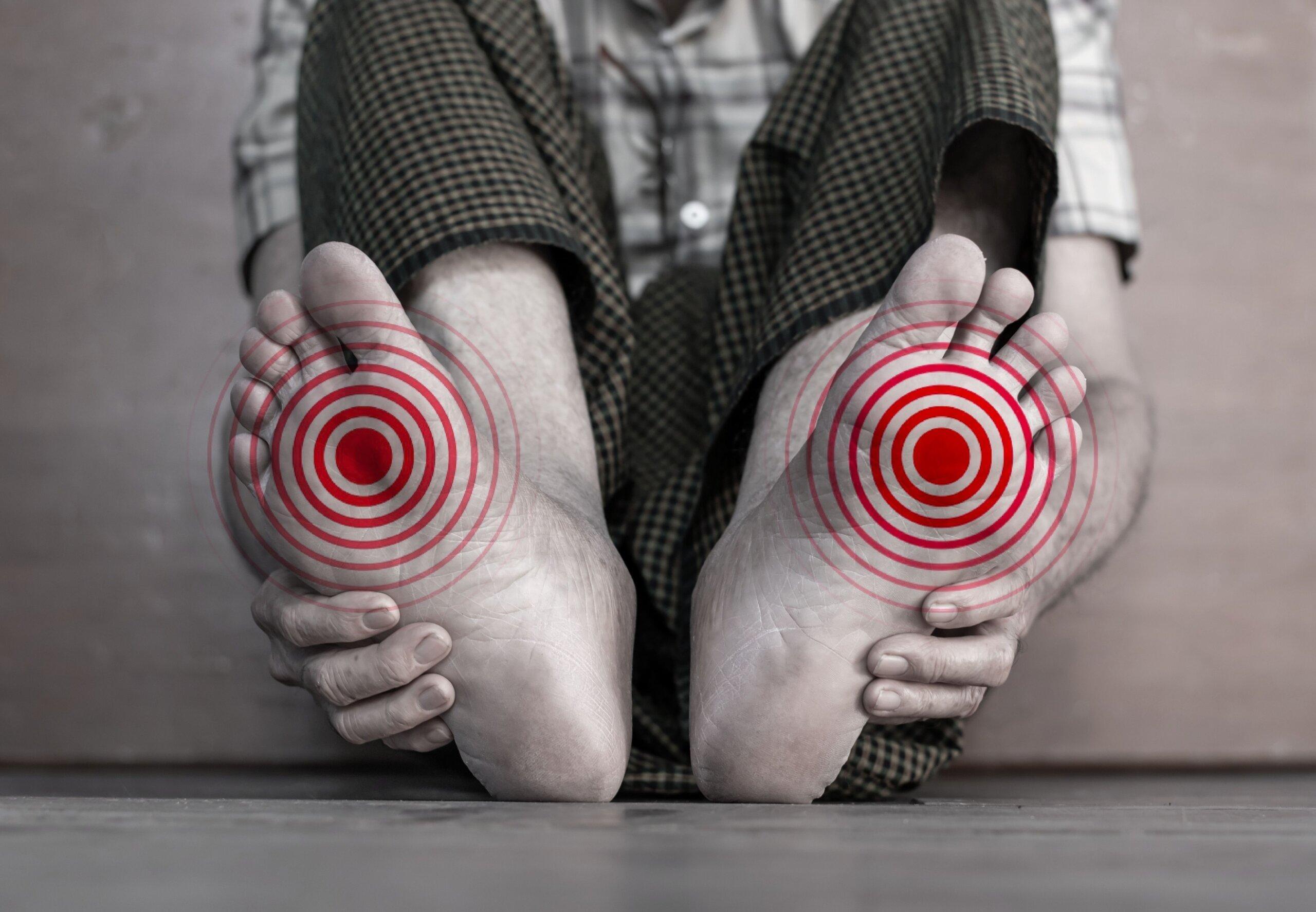You first noticed the tingling in your toes while climbing the stairs one evening. “It’s just fatigue,” you told yourself. But soon, the numbness spread, and sharp pains began to shoot through your feet and hands. Simple tasks like buttoning a shirt or holding a coffee mug became challenging. Frustration and worry set in. “What’s happening to me?” you wonder, feeling isolated and desperate for answers. You begin searching for a “neuropathy doctor near me.”
But you find the search results confusing at best. Many specialties pop up. What is this? All you want is relief.

The truth is that a neuropathy doctor can be many types of doctors. Each specializes in neuropathy, and takes a slightly different approach. I hear from patients all of the time that it’s hard to know where to start. So, I created this guide for you.
I want to demystify the specialty, look at what they treat and how they approach nerve pain symptoms. In the end, you’ll understand how to find a doctor of neuropathy in San Francisco that can best help you find relief without sacrificing your quality of life in the process.
What is a Neuropathy Doctor?
A neuropathy doctor is a healthcare professional who specializes in diagnosing, treating, and managing neuropathy—a condition resulting from damage to the peripheral nerves. This nerve damage can cause symptoms like pain, tingling, numbness, and muscle weakness, often affecting the hands and feet. Because neuropathy can have various causes and affect different aspects of health, multiple types of specialists may be involved in your care, leading to confusion about what a neuropathy doctor is.
These specialists can work independently of one another or may work together in multi-disciplinary neuropathy treatment plan. Some may take a more functional, holistic, and natural drug-free approach. Others may recommend medications or surgery.
Some just focus on treating symptoms and masking a worsening condition. Others focus on the root cause of nerve pain and how to help nerves heal.
Each of them can play a role in your neuropathy treatment plan and recovery from the pain caused by the condition.
Understanding the types of doctors of neuropathy you might encounter and what their role is in the treatment process can help you “find a neuropathy doctor in your area” that can help you experience relief.
What Doctors Treat Nerve Damage
Several specialties are involved in neuropathy treatment. These could include a neurologist, chiropractor, endocrinologist, podiatrist, pain management specialist, or registered dietitian (who isn’t medical doctor but often very important), among others. Let’s look at the role and expertise of each specialist and how they might fit into your neuropathy plan.
Neurologists:
- Role: A Doctor of Neuropathy, specializing in the nervous system, including the brain, spinal cord, and peripheral nerves.
- Expertise: They perform detailed neurological exams and use diagnostic tests to identify the type and cause of neuropathy. Neurologists often manage complex cases involving significant nerve damage.
- What They Treat: Typically severe (and possibly irreversible) nerve damage such as autoimmune system destruction, chemo-induced nerve damage, advanced degradation of nerve tissues, genetic disorders, poisoning, and more extreme cases.
- Their Philosophy: While I can’t speak for all neurologists, many believe that nerve damage is relatively permanent. Nerves can grow back but will never function the same and may always cause pain and reduced function. This belief isn’t surprising when we consider the fact that they deal with some of the worst nerve damage cases out there.

A Chiropractor Neuropathy Doctor:
- Role: A Neuropathy Doctor who focuses on the musculoskeletal and nervous system, emphasizing manual adjustments and manipulations to free trapped nerves and improve blood flow to suffering nerves. They also apply scientifically supported devices and methods to increase blood flow and promote nerve healing, including nutrition therapy, supplementation, acupuncture, laser therapy for pain, shockwave therapy, Graston Technique, etc. The treatment needs depend on the cause and severity of your neuropathy. Furthermore, chiropractors can order tests and imaging to confirm diagnoses before choosing the best neuropathy treatment.
- Expertise: Chiropractors can help alleviate neuropathy symptoms by improving nerve function through spinal adjustments, nerve stimulation therapies, and personalized exercise programs. They offer non-invasive, drug-free treatment options that address both symptoms and underlying causes.
- What They Treat: Chiropractors most often treat mild to moderate neuropathy that may be related to the following: diabetes (which is now controlled), well-managed autoimmune disorders, chronic infections, poor blood flow, a trapped or irritated nerve (such as spinal stenosis or sciatica), damage caused by poor nutrition or toxic exposure.
- Their Philosophy: They believe in getting to the root cause of symptoms rather than focusing solely on them. They pride themselves on promoting nerve health with natural treatments that help patients avoid or reduce dependence on potentially dangerous pain medicines. Yes, the science is clear. Damaged nerves can heal. They can repair themselves. They can regenerate.
Your first visit includes a neuropathy assessment, consultation and first spinal adjustment. Schedule that initial visit today.
Endocrinologists:
- Role: A Neuropathy Doctor specializing in hormone-related disorders.
- Expertise: Since diabetes is a leading cause of neuropathy, endocrinologists will often be on the list of neuropathy doctors you might see. They help those with diabetes manage blood sugar levels to prevent further nerve damage using a combination of nutrition advice, exercise, and medication (such as insulin).
Podiatrists:
- Role: A Doctor of Neuropathy specializing in nerve problems in the foot and ankle. You might hear them called a neuropathy foot doctor.
- Expertise: They address neuropathy symptoms in the lower extremities, providing care to prevent ulcers, severe, infections, amputations, and other complications. They focus primarily on neuropathy of the toes treatment.
Pain Management Specialists:
- Role: A Doctor of Neuropathy who focuses on relieving chronic pain, especially in those with irreversible medical conditions.
- Expertise: They offer treatments like medications, nerve blocks, or other interventions to manage severe neuropathic pain.
- Their Philosophy: Generally speaking, their philosophy is that chronic pain or irritation caused by nerve damage is not treatable or reversible (which is true sometimes). So, they focus on doing what they can to make life bearable through pain treatments. However, this relief often comes with uncomfortable side effects like lethargy, brain fog, memory problems, and cognitive issues—not ideal for someone who is trying to hold down a job, stay active, raise kids, travel, transition into retirement, or enjoy a relatively normal life.
Nutritionist or Registered Dietitian:
Role: A nutritionist or registered dietitian is a specialist who focuses on how your diet impacts your overall health, including nerve function. They are experts in food and nutrition, helping you understand how certain nutrients can support nerve healing and how dietary choices may alleviate or exacerbate your symptoms.
Expertise: These professionals provide personalized nutritional guidance to address deficiencies and manage conditions that contribute to neuropathy. They might assess your eating habits and recommend adjustments, such as increasing your intake of vitamins B6, B12, and E—nutrients essential for nerve health. Dietitians often have you work with a nutrition coach to develop healthy food habits and adopt a diet that stabilizes blood sugar levels.
What They Treat: Nutritionists or registered dietitians often work with patients whose neuropathy is influenced by:
- Nutritional Deficiencies: Lack of essential vitamins and minerals can lead to nerve damage.
- Metabolic Conditions: Conditions like diabetes or thyroid disorders that affect nerve health.
- Inflammation: Diets high in inflammatory foods can worsen neuropathy symptoms.
Their Philosophy: They believe that “food is medicine.” By harnessing the healing power of a balanced diet, they aim to reduce inflammation, improve nerve function, and enhance your overall well-being. They focus on empowering you with knowledge and practical strategies to make healthier food choices, emphasizing that even small changes can lead to significant improvements in your symptoms.
Why Multiple Specialties Are Involved
Neuropathy is a complex condition with various causes. Its multifaceted nature means that effective treatment often requires a team approach.
Here’s how those neuropathy doctors might work together in someone with diabetic neuropathy.
- Diagnosis: Neurologists, endocrinologists and chiropractors can all perform the initial assessments and order tests to determine nerve function and identify the neuropathy type.
- Underlying Conditions: Endocrinologists manage diseases like diabetes that contribute to neuropathy, while a neurologist would address most other causes.
- Symptom Management: Chiropractors offer therapies to reduce pain and improve nerve function without relying solely on medications. Pain management might need to prescribe medications when pain is severe. But most people don’t want to have to be on pain medicine long term. As a chiropractor, I can work with your prescriber to reduce your dose as the nerves begin to heal.
- Optimizing Health / Ongoing Care: Chiropractors and Nutritionists help you optimize your lifestyle to promote healthier nerves and overall health.

neuropathy: when to see a doctor
The best time to see a neuropathy doctor is early. At this time, you still have the best chance of resolving the issues and completely restoring nerve health.
So, if you notice a strange tingling in your fingers or toes. Maybe there’s a numbness that doesn’t go away, or sharp pains that catch you off guard and wake you up at night. These could be signs of neuropathy—a condition where your nerves are damaged or not working properly. It’s best not to ignore this.
Why Early Intervention Matters
Seeing a doctor of neuropathy early can make a big difference. Here’s why:
- Prevent Further Nerve Damage: Early treatment can halt or slow the progression of neuropathy, and, in most cases, reverse it.
- Improve Quality of Life: Managing symptoms can help you return to your daily activities without pain. Trying to manage this pain alone can lead to worsening symptoms as you may become more sedentary and develop depression. These become a slippery slope toward a worse situation. Let’s turn this around!
- Address Underlying Causes: Identifying issues like diabetes, trapped nerves, or vitamin deficiencies can improve overall health. Some of these are easily treatable, and in some cases, reversible under professional care.
- Avoid Complications: Reducing the risk of falls, injuries, infections, and, of course, amputations if it’s really bad.
Recognizing the Early Signs
Neuropathy can show up in different ways. Here are some common symptoms to watch for:
- Tingling or Numbness: A “pins and needles” feeling in your hands or feet (that wasn’t caused solely because you were sitting on your legs for too long or laying on your arm in a weird way. That’s perfectly normal unless the tingling doesn’t go away quickly.)
- Burning Sensations: Unusual warmth or burning pain, especially in your extremities.
- Sharp or Jabbing Pain: Sudden, intense pains that seem to come out of nowhere.
- Muscle Weakness: Difficulty holding objects or a feeling of weakness in your limbs.
- Sensitivity to Touch: Even a light touch can cause discomfort or pain.
- Balance Problems: Feeling unsteady on your feet or experiencing frequent falls.
More Pressing Signs Requiring an Immediate Trip to the Neuropathy Doctor
You may be past the early signs and onto signs of more severe neuropathy when you have:
- Persistent Symptoms: If numbness, tingling, or pain doesn’t go away after a few days.
- Worsening Condition: Symptoms that gradually get worse over time.
- Interference with Daily Activities: Difficulty performing tasks like walking, buttoning a shirt, or holding utensils.
- Severe Pain: Intense pain that’s hard to manage with over-the-counter remedies.
- Underlying Health Conditions: If you have diabetes or other conditions known to cause neuropathy.
- Infections or Injuries: Sores or infections on your feet that heal slowly.
- Loss of Mobility: Severe cases might make it difficult to walk or use your hands effectively. You’re more likely to fall and break something, leading to more damage.
- Increased Risk of Injuries: Numbness may prevent you from feeling cuts or sores, leading to infections and slow healing
- Muscle Atrophy: Ongoing nerve damage can cause muscles to weaken and shrink. It’s much harder to get muscle mass back than it is to retain it, especially as we age.
Why See A Chiropractor Neuropathy Doctor First
If you’re experiencing the unsettling symptoms of neuropathy—such as tingling, numbness, or sharp pain in your hands or feet—you might be wondering whom to consult first. While there are several healthcare professionals who treat neuropathy, seeing a chiropractor who specializes in neuropathy can offer unique benefits. Here’s why choosing a chiropractor as your first point of contact can be a wise decision.
Your first visit includes a complete neuropathy assessment, consultation, and first spinal adjustment or other treatment based on your diagnosis. That’s a great value!
Schedule that initial visit today.
1. Non-Invasive, Drug-Free Treatment Options
Chiropractors focus on natural healing methods that do not rely on medications or surgeries. This approach can be particularly appealing if you’re looking to avoid the potential side effects of drugs or the risks associated with invasive procedures.
Starting with your San Fransisco chiropractor reduces the chances that you see a medical doctor who is of the mindset that nerves don’t heal. That philosophy could get you stuck in a cycle of pain medicine and invasive procedures when a more natural and effective method could have solved the problems—faster and better.
If you haven’t already started taking medication, beginning with a chiropractor could mean you never have to. Imagine that: neuropathy treatment without drugs. It’s possible!
If you’re already on neuropathy treatment drugs like gabapentin, I cannot emphasize this enough. You do not want to stay on this long-term. It can lead to vision changes, mood changes, dizziness, and cognitive issues—many of which become permanent after taking the drug for some time. And often, doctors don’t tell you, or they gloss over these serious and irreversible side effects.
2. Your Neuropathy Doctor Takes a Holistic Approach to Care
Chiropractors consider the whole body when treating neuropathy, not just the symptoms. This comprehensive approach aims to address the underlying causes of your condition. And it’s important because if we address one cause like a trapped nerve but do not take steps to help that nerve heal and not get trapped again, any treatment will be temporary.
When a Doctor of Neuropathy provides holistic care, they address all areas of the healing process:
- Lifestyle Guidance: Advice on nutrition, exercise, and stress management to support overall nerve health.
- Customized Treatment Plans: Tailored therapies that suit your specific needs and health goals.
- Collaboration with Other Professionals: Chiropractors often work alongside other healthcare providers to ensure you receive well-rounded care.
3. Early Intervention and Prevention
Seeing a chiropractor early can help halt the progression of neuropathy and prevent further nerve damage. It should be your first choice because the sooner we fix the cause, the sooner your nerves can start to heal. The greater chance they have to fully recover.
As a chiropractor doctor of neuropathy here in San Francisco, I believe in:
- Early Detection: We train our chiropractors to recognize the signs of neuropathy so we can initiate treatment promptly.
- Preventive Measure: Implementing lifestyle changes and therapies can reduce the risk of complications.
- Education: You’ll gain valuable knowledge about managing your condition effectively. Your Truspine Neuropathy Doctor takes time to get to know you. We identify how best we can help you become more informed about various exposures and lifestyle factors that are making your condition worse—or preventing full recovery.
4. Improvement of Nerve Function
Chiropractic care aims to enhance the body’s natural healing processes by improving nerve function.
This focus doesn’t only help neuropathy. It can help you feel and function better all around. When working with a chiropractic nerve doctor you can expect to achieve:
- Reduced Nerve Interference: Adjustments can alleviate compression or irritation of nerves.
- Enhanced Blood Flow: Therapies may improve circulation, providing nerves with essential nutrients and oxygen they need to start recovering. For example, neuropathy treatment using electrical stimulation can open and stimulate blood vessels.
- Symptom Relief: Many patients experience a decrease in pain, tingling, and numbness immediately after freeing the nerve. For some, it may take a little more time to help the nerve heal.
5. Personalized Attention and Patient-Centered Care
Chiropractors often spend more time with patients during appointments than conventional medicine doctors, allowing for a deeper understanding of your condition.
- Comprehensive Assessments: Detailed evaluations help identify all factors contributing to your neuropathy.
- Accessible Communication: Open dialogue ensures your concerns are heard and addressed.
- Ongoing Support: Regular follow-ups help track progress and adjust treatments as needed.
6. Complementary to Conventional Medicine
Chiropractic care can be effectively integrated with other medical treatments. It’s not either or! Conventional medicine can do some great things.
As your chiropractor who specializes in neuropathy, I help by:
- Augmenting Medical Care: Enhances the effectiveness of treatments prescribed by neurologists or other specialists.
- Reducing Reliance on Medications: May decrease the need for pain medications over time.
- Collaborative Approach: Chiropractors can coordinate with your healthcare team for comprehensive care.
You deserve to live pain-free!
7. Focus on Quality of Life
The ultimate goal is to improve your daily functioning and well-being through:
- Increased Mobility: Therapies can help you regain strength and coordination.
- Pain Management: Effective strategies to control and reduce pain levels.
- Enhanced Daily Living: Better symptom control allows you to engage more fully in activities you enjoy.
8. Access to Neuropathy Latest Treatment
The Neuropathy Doctors at Truspine have access to some of the latest and most cutting-edge ways of treating neuropathy including:
9. Neuropathy Treatment Options for the Whole Body
Now, some people think chiropractors are “just back doctors”, so I want to clarify.
Very often neuropathy treatment in feet, neuropathy treatment in hands, or neuropathy numbness treatment starts with releasing a trapped nerve in the back and taking steps to prevent it from being trapped again. But this isn’t always the only problem. Whether you’re experiencing diabetic neuropathy, chemo-induced neuropathy, autoimmune disorders, or nutrition deficiency—just to name a few causes—starting with a chiropractor is a great choice.
Because if you can fix this naturally with functional care, don’t you want to do that?
Your Neuropathy Doctors in San Francisco
Looking for a neuropathy doctor in your area? Truspine Chiropractic specializes in neuropathy diagnosis and treatment. We identify the root cause of your nerve pain and build a personalized treatment plan that focuses on promoting your nerves’ natural ability to heal themselves. We work with other neuropathy specialists, complementing medical care with holistic and effective treatments.
Avoid the serious consequences of being on lifelong nerve pain medications and provide more lasting relief. Live pain free! To get your complete neuropathy assessment, consultation, and first treatment, Schedule that initial visit today.
Frequently Asked Questions About Neuropathy Doctors
How does neuropathy treatment for feet electrical stimulation work?
Electrical stimulation for foot neuropathy delivers mild electrical impulses to affected nerves, reducing pain and improving function. It promotes blood flow, blocks pain signals, and may stimulate nerve regeneration, helping alleviate neuropathy symptoms like tingling, numbness, and discomfort.
How can I find a diabetic neuropathy doctor near me?
If you’re experiencing symptoms of neuropathy with an unconfirmed cause, the best place to start is with a chiropractor who specializes in neuropathy. This ensures that non-invasive and natural treatment options that target the root cause of nerve pain are prioritized in your treatment plan.
Can I get neuropathy treatment at home?
What you do at home to treat your neuropathy is just as important as what treatment you have at our offices. Our team of neuropathy doctors helps you build a home program that may include certain exercises, lifting techniques, nutrition, and more.
What kind of doctor treats nerve damage in the feet?
A chiropractor neuropathy doctor treats nerve damage in the foot by addressing the root causes of nerve pain in the feet and improving blood flow to enhance your body’s natural ability to heal damaged nerves.
Live pain free! To get your complete neuropathy assessment, consultation, and first treatment, Schedule that initial visit today.

